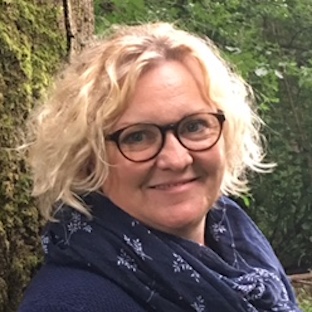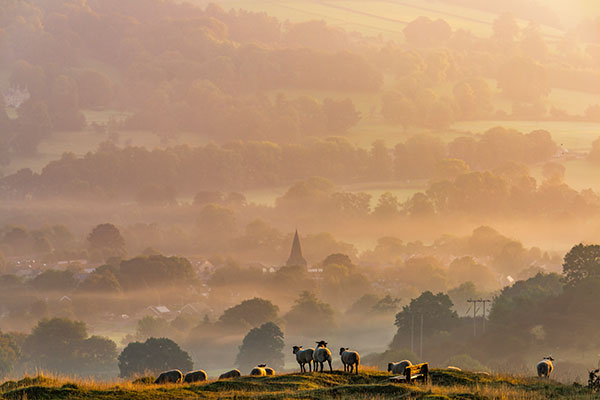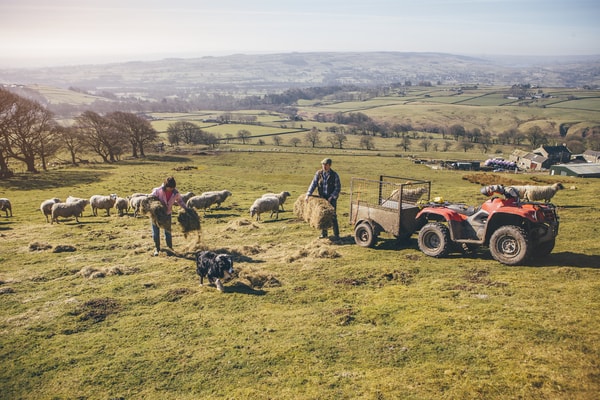A couple of weeks ago I was excited to host Christiana Figueres and Tom Rivett-Carnac at the RSA to talk about their new book, The Future We Choose. It describes – buy it, read it – two possible future scenarios for planet earth; one in which we responded to and reversed the climate and nature emergencies; and one in which we didn’t. Even then, we hadn’t quite got our heads around just how quickly our world would change.
Yet futurists have been analysing global risks for decades. Global warming and biodiversity loss have risen inexorably up those lists; but anti-microbial resistance and global pandemics have been on there for a while.
And now it’s here. With Covid19 in the UK, the FFCC team is practising responsible social distancing and remote working, to help flatten the curve of possibly the worst global crisis for 100 years, and to buy the time needed for essential services to shore up and adapt.
Already, it’s throwing into painfully sharp relief the fragilities in parts of our social fabric. How we work and travel; how we shop and eat; how we organise health services; how we care for vulnerable people…
In my village community at home in Wales, people are mobilising and organising to support each other. I’ve joked for a while that we’re ‘apocalypse ready’ here, with a local grocer, baker, butcher, veg box deliveries and milkman, doctor, chemist, post office and hardware store, clothes shop, several pubs and a brewery (possibly not in order of importance). But perhaps I wasn’t joking…
For the next few months, countries around the world, and perhaps especially the privileged north, who’ve believed themselves insulated against systemic shocks, are going to learn what really matters to us, in our communities and across society.
And it is critical that we do learn from this; and not just hunker down as best we can, before we rush back to ‘Business as Usual’ just as soon as we can. So we also need good architectures for learning – places (largely virtual now) where we can reflect together, come to terms with new and difficult information, make some sense in common about what matters, and put steps in place to build more resilient and adaptable systems, able to mitigate and respond to such shocks.
In FFCC we count ourselves lucky; we can continue to work remotely together, and with our partners, strengthened by the good and purposeful relationships we’ve built up over time.
This is what we’ll be working on over the next few months, in service of the long-term adaptations we will need.
Changing how we think and act about sustainable food and farming systems.
As food and farming debates have become more tribal, so the proposed solutions have become more polarised. When people come at the argument from one point of view, or body of evidence, it has consequences. A climate-first view could have considerable disbenefits for natural ecosystems; a nature-first view could have effects on rural communities. And now we’re having to think seriously and swiftly about food security (having enough nutritious and affordable food for all) and food sovereignty (taking responsibility for growing more of what we can, within our own ecological boundaries). Meanwhile, we’ve become acculturated to rallying around simplistic three-word soundbites. It’s time to stop. With the right conditions for reflection and learning in place, people get that food and farming systems are complex, connected and interdependent; and truly sustainable systems have many co-benefits – for climate and nature, health and wellbeing and community prosperity. We’ll continue to make the case for a broad and balanced transition to a fairer food system, sharing the evidence the underpins our proposals.
A transition plan for agroecology.
The FFCC report argues that a transition to agroecological practices answers these interconnected questions for food, farming and the countryside. We use the FAO definition, rooted in our shared ‘whole systems’ perspectives; “an integrated approach that applies bothecological andsocial concepts and principles to the design and management of food and agricultural systems”. It responds to both the technical farming and land use questions (how to farm for climate, nature and health) and the social questions (how to grow and sustain a just food system, fair for farmers, food workers and citizens, in the UK and globally). We are working with our partners in the UK to develop a transition plan for UK farming by 2030, commissioning three important pieces of work to back this. 1) We’ve asked IDDRI, the French think tank who developed the Ten Years for Agroecology plan for Europe, to model how agroecology could work for the UK. 2) We are working with finance experts to explore how to resource a just transition to agroecology. 3) We’re developing a communications plan to explain agroecology in simple, straightforward ways, for policy makers, citizens and farmers.
Telling the stories of local innovation and resourcefulness in food systems.
The Covid 19 crisis is demonstrating for us in real time how people in their communities are responding to complex challenges. Those places with strong social bonds and good relationships seem to be organising quickly in service of their communities’ needs, in cities and in the countryside. That a globalised, industrialised food system might in fact be fragile and limited is becoming clearer. Investment in local (and regional) capacity and infrastructure is now a critical task, directed at growing more of the healthy food we need, and in local processing, distribution and sales. This is not to retreat to populist, protectionist arguments, but to inspire the shift towards food and farming systems that build resilience in countries and communities around the world. We told such stories in our Field Guide and we’ll keep telling them through the summer, coloured now with a different palette. We’ll share them across our virtual platforms, joining up and sharing learning, inspiration and practice across the UK.
These are extraordinary times. For farming communities, this is following on hard from an unprecedented and depressing wet winter and all the uncertainty in the post Brexit framework. Some people’s emotional and financial resources are already severely depleted, Government can do three things to help right now.
- Adjust the transition to new post-CAP payment regimes, so that farmers do not have to worry about losing yet more income, before the new arrangements are in place.
- Pledge to keep the whole CAP resource in rural communities, deploying the difference between this and future ELMs payments, and other financial instruments, to invest in sustainable local food systems, especially in infrastructure and horticulture.
- Commit to trade deals that uphold the highest standards; use COP26 to advocate for a global transition to agroecology, as the nature-based solution for more resilient and adaptable food and farming, fair and sustainable supply chains and a just transition.
Just two weeks ago I was talking to Christiana and Tom about the mindset needed to survive the climate crisis. They described a quality of stubborn optimism – “not because success is guaranteed, but because failure is unthinkable”. We will need all of this through the coming months.
Related articles
-
Finding the road to renewal
Sue Pritchard
New poll by FFCC and the Food Foundation finds 85% of people want to see some of the personal or social changes they have experienced during Covid-19 continue afterwards, whilst just 9% want everything to go back to how it was before the pandemic.
-
Counting on recovery: collecting the data to inform policy post-crisis
Tom MacMillan
We’re starting to gather evidence on community responses to the pandemic, to help shape post-crisis policy. If you are too, let’s team up.
-
The UK needs a land use framework
Sue Pritchard
Climate change is here; and we must all take it seriously. A land use framework would be the start of a plan commensurate with the scale of the task ahead.




Be the first to write a comment
Comments
Please login to post a comment or reply
Don't have an account? Click here to register.